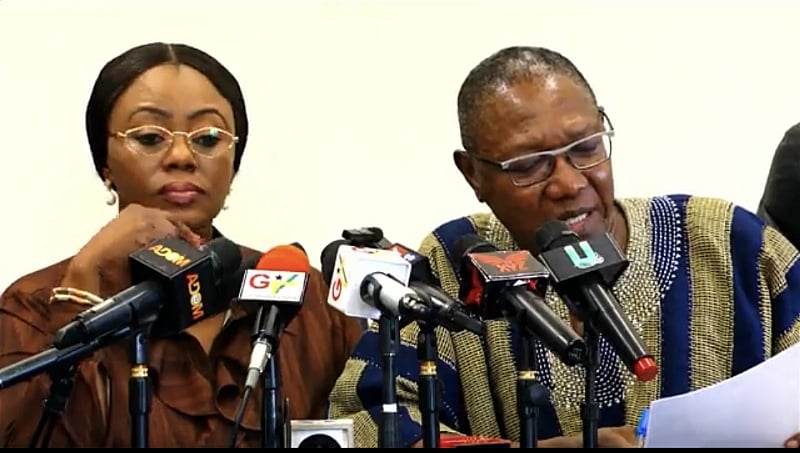The Ministry of Education in Ghana has unveiled a revamped school placement process for the 2025 Basic Education Certificate Examination (BECE), introducing crucial changes to streamline the transition of students into secondary education. The new guidelines mandate candidates to select a total of seven schools, comprising five primary choices and two alternative options, effectively broadening the scope of consideration while providing a safety net in case a student doesn’t secure placement in their top preferences. This revised system underscores a shift towards a more comprehensive and student-centered approach, aimed at ensuring a smoother and more efficient placement procedure. The selection window for these choices will be open from May 27th to June 6th, giving candidates ample time to carefully consider and finalize their selections.
A key aspect of the new guidelines is the emphasis on structured selection, requiring candidates to rank their chosen schools in order of preference. This ranked preference system allows students to prioritize their desired institutions, providing a clearer indication of their educational aspirations and ensuring that placement aligns as closely as possible with their individual goals. Furthermore, the system incorporates specific stipulations regarding the types of schools chosen. Candidates must select at least three boarding schools amongst their five primary choices, with the remaining two slots open for day schools. This balance encourages exploration of different learning environments while still providing a structured framework for selection. The selection of Category B and C schools offers greater flexibility, allowing students to choose them as either day or boarding options, catering to diverse preferences and circumstances.
However, the guidelines also introduce limitations to ensure balanced distribution across different school categories. Candidates are restricted to selecting a maximum of one Category A school and no more than two Category B schools. While Category C schools can be chosen more freely, candidates are prohibited from filling all five primary choices exclusively with Category C institutions. This measure likely aims to prevent oversubscription of certain school categories and promote a more equitable distribution of students across various institutions. The Ministry has stressed the finality of placements, stating that once a student is assigned to a school, the choice cannot be altered. This underscores the importance of careful consideration and consultation during the selection process.
To facilitate a smooth transition and ensure widespread understanding of the new guidelines, the Free SHS Secretariat and the Technical and Vocational Education and Training (TVET) Service will launch nationwide sensitization campaigns. These campaigns will target candidates, parents, and school administrators, providing comprehensive information and guidance on the revised placement process. The inclusive nature of these campaigns reflects the Ministry’s commitment to ensuring that all stakeholders are well-informed and equipped to navigate the new system effectively. This proactive approach aims to preemptively address potential challenges and ensure a seamless implementation of the guidelines.
The guidelines also address the specific needs of students interested in pursuing Technical and Vocational Education and Training (TVET) pathways. These candidates are required to select five TVET institutions from across Categories A, B, and C, with the option to choose between day and boarding options. This dedicated provision for TVET pathways reflects the government’s commitment to promoting vocational skills development and providing diverse educational avenues for students. Similarly, students with aspirations in specialized fields such as engineering, medicine, or space science are required to opt for STEM-focused schools across the different categories, aligning their educational choices with their career aspirations.
Parental involvement plays a crucial role in the selection process. Parents are required to endorse the completed selection form with their signature, signifying their approval and understanding of the chosen schools. The signed form must then be submitted to the candidate’s current school. Parents are also advised to retain a copy of the completed form for their records. This emphasis on parental engagement underscores the collaborative nature of the process, recognizing the significant role parents play in their children’s educational journey. The requirement of parental signature ensures informed consent and reinforces the importance of shared decision-making.
While the integration of private schools into the placement system is a long-term objective, it will not be implemented for the 2025 intake. This delay is attributed to ongoing discussions and the need for further refinement of the framework. Key considerations include determining fee structures and ensuring a smooth transition process. Although significant progress has been made in the discussions between the Ministry of Education, the Ghana Education Service, and representatives from private schools, the complexities of integrating private institutions into the free SHS program necessitates a more extended timeline for implementation.
The Deputy Minister of Education, Hon. Clement Appak, confirmed the significant progress made in these discussions, highlighting the development of a framework for private school integration. He emphasized the comprehensive nature of the consultations, data collection, and system alignment efforts undertaken to ensure a seamless transition when the integration eventually takes place. This phased approach reflects a commitment to ensuring that the integration of private schools into the placement system is carefully planned and executed, minimizing potential disruptions and maximizing the benefits for all stakeholders. The ongoing dialogue and collaborative approach between the government and private schools suggest a commitment to finding a mutually beneficial solution that expands educational opportunities for Ghanaian students.














